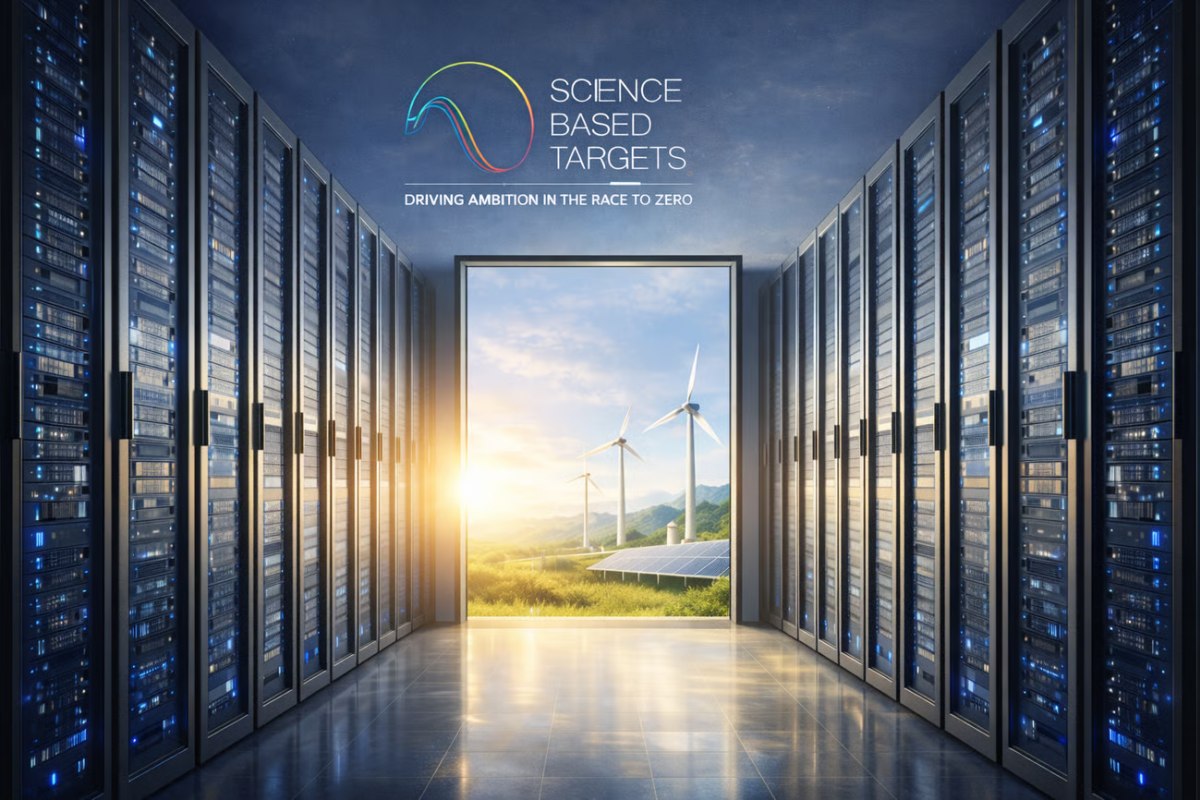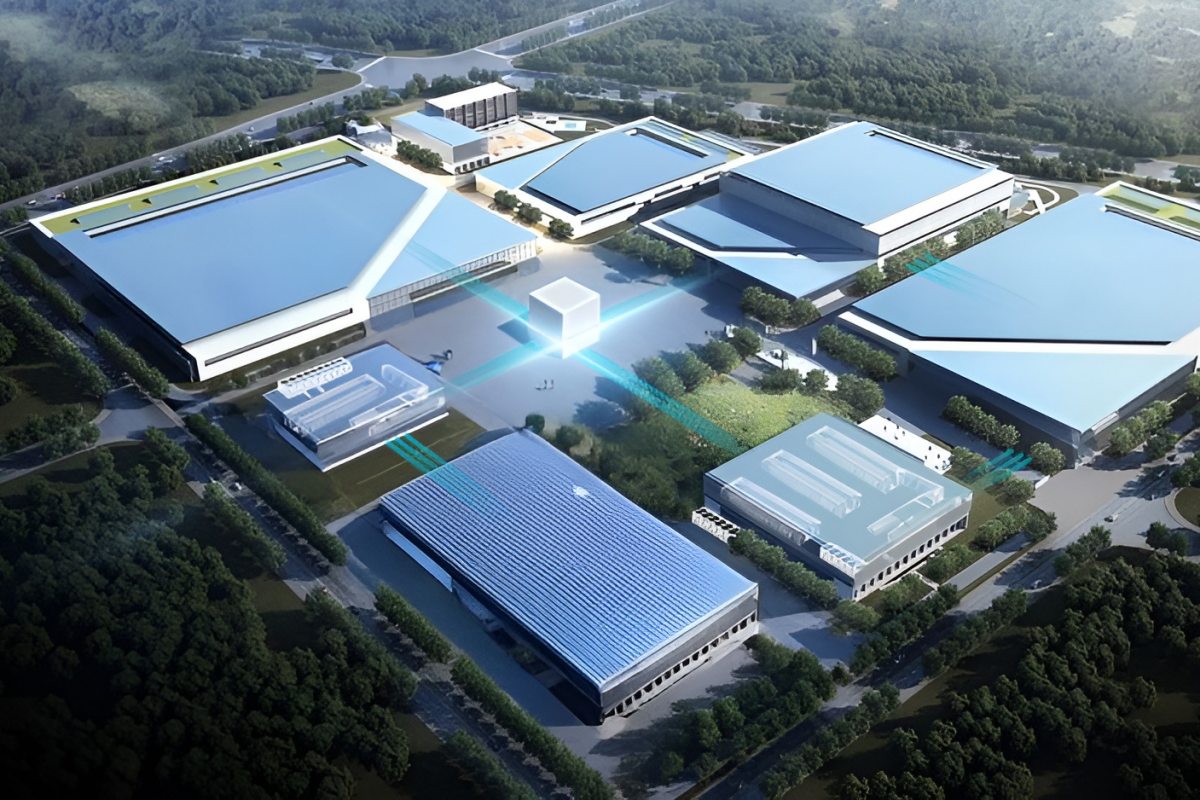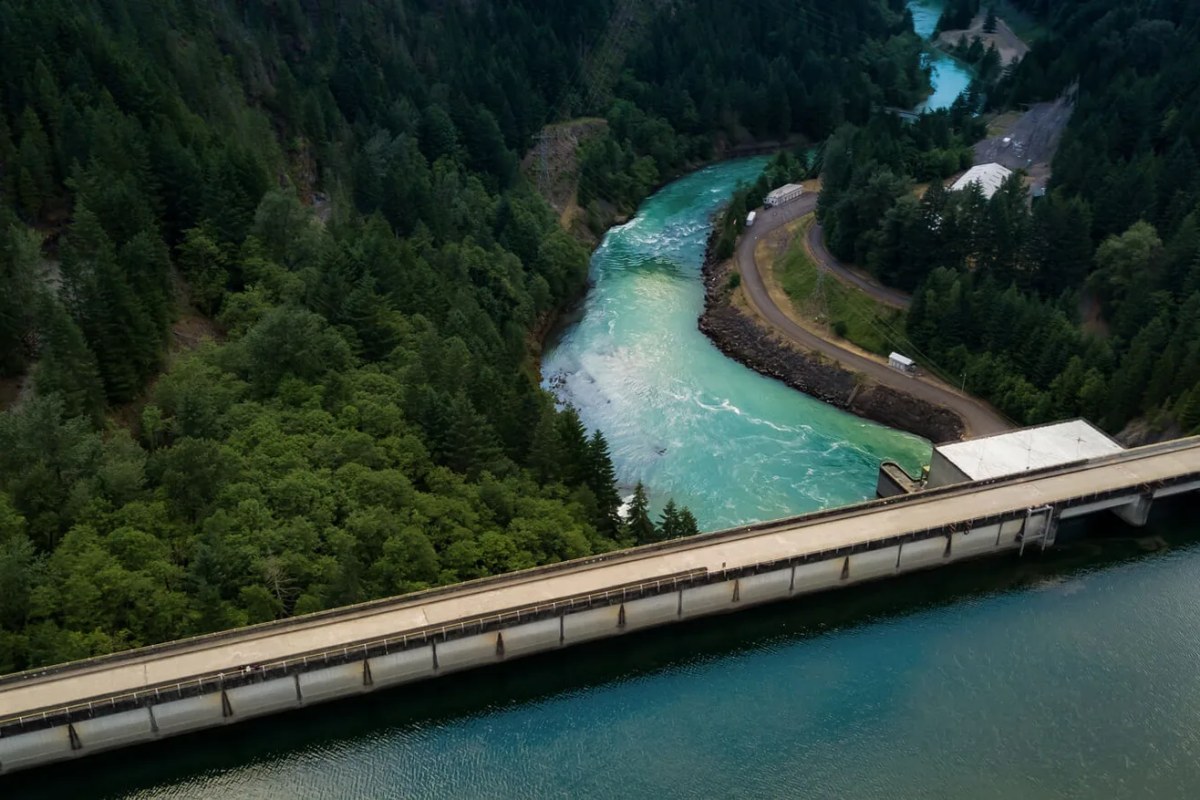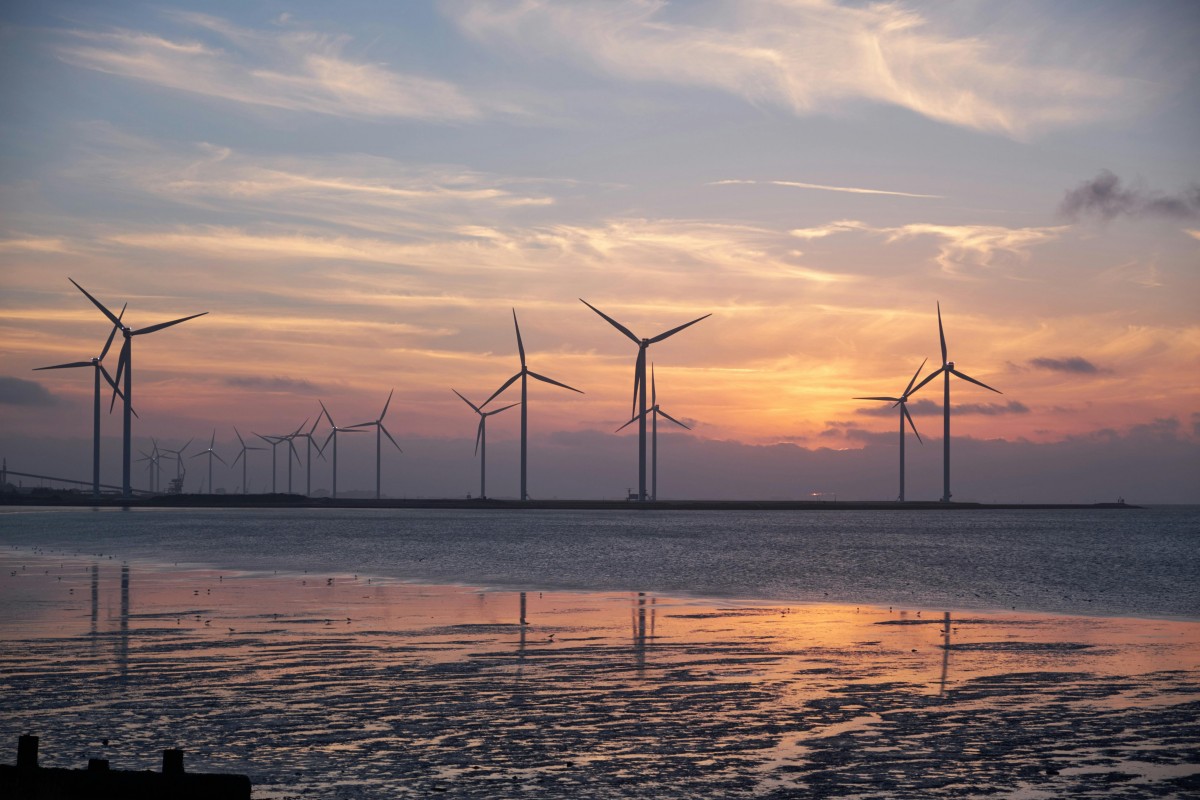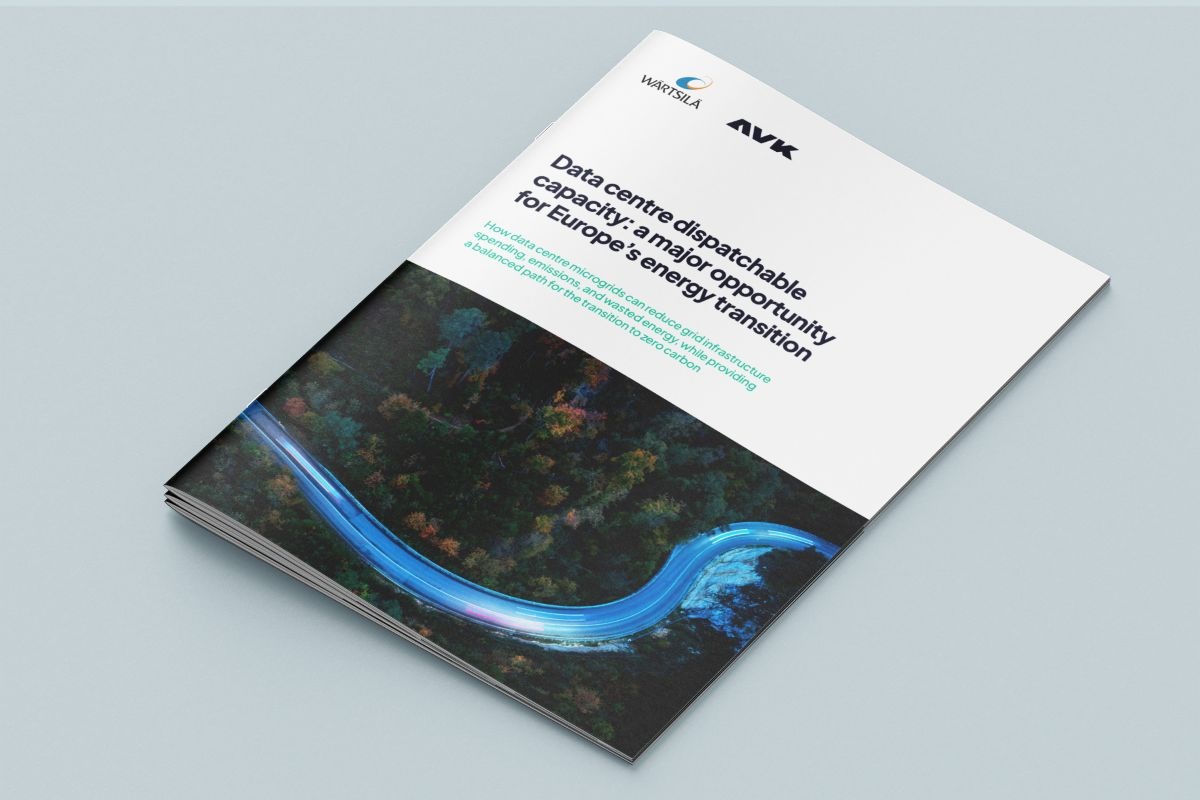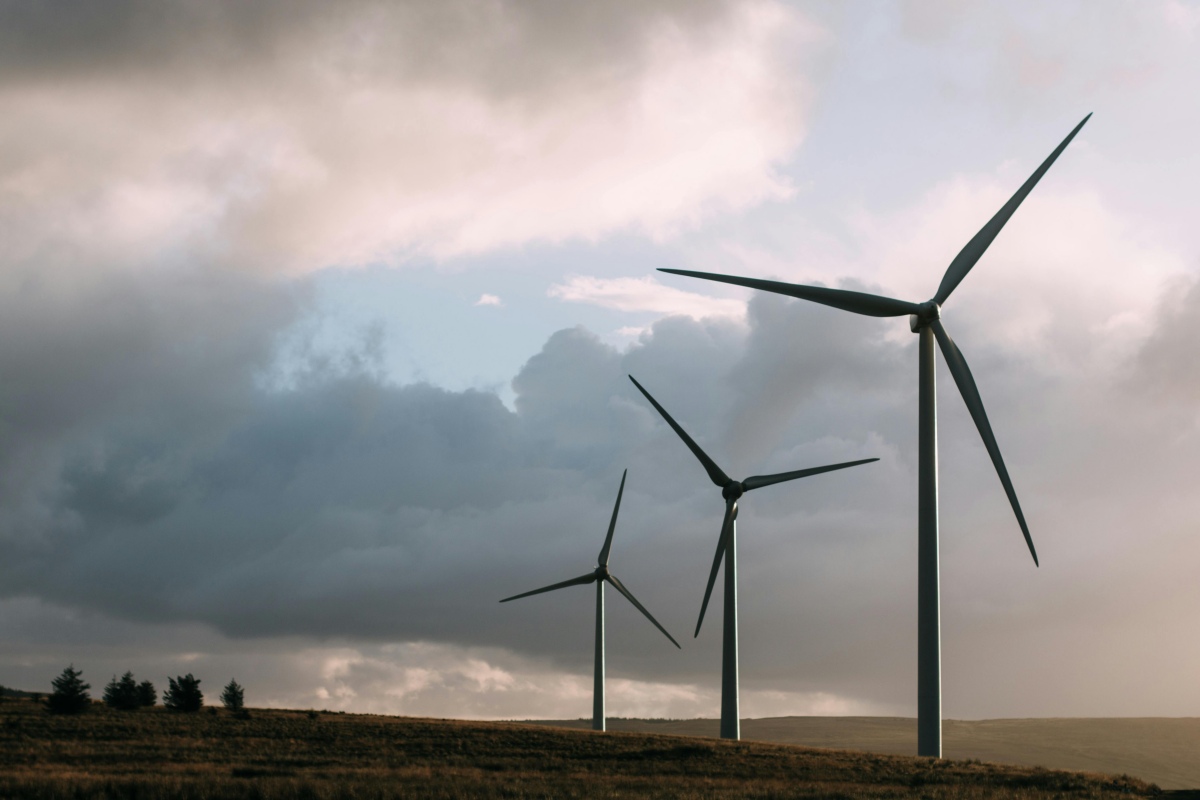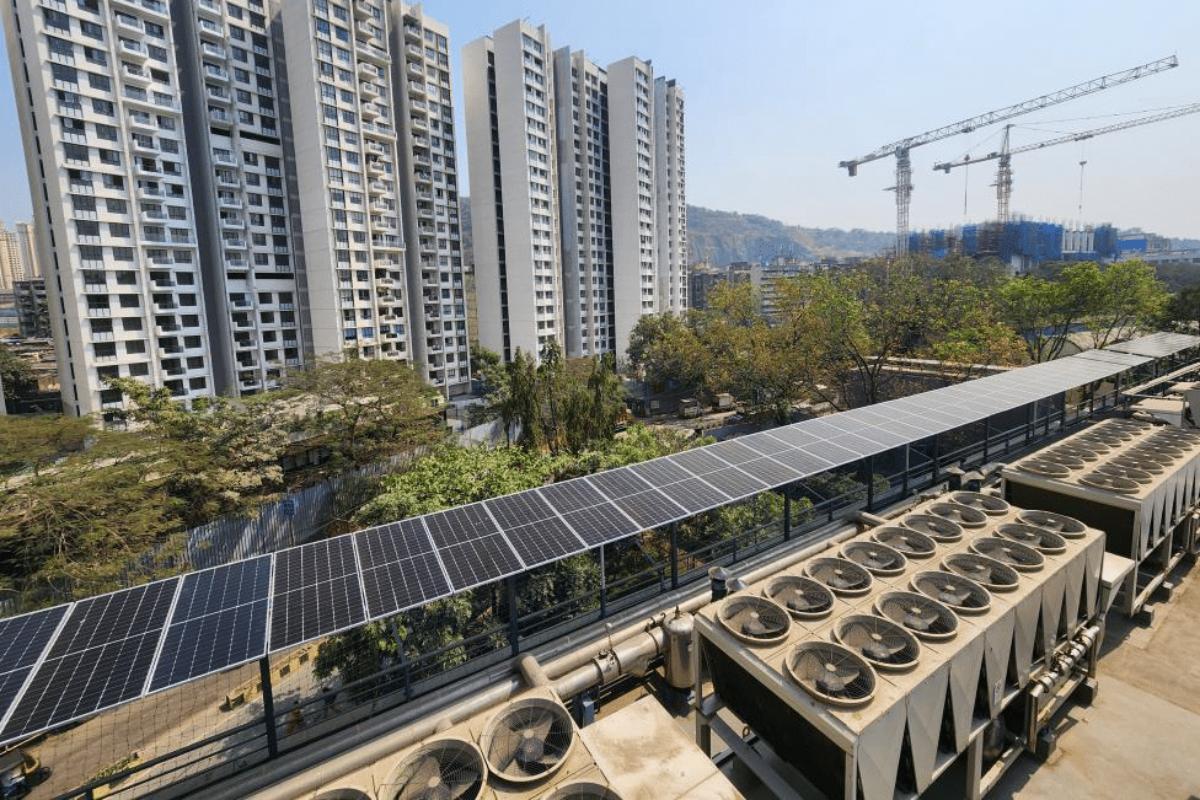Renewables and Energy: Infrastructure Builds Driving Sustainable Power
Data Centre Build News & Insights
Renewables and Energy: Infrastructure Builds Driving Sustainable Power
Sustainable Infrastructure: Building Resilient, Low-Carbon Projects
Datacenter United gains SBTi emissions validation
Datacenter United, an independent Belgian data centre operator, has confirmed that its near-term emissions reduction targets have been validated by the Science Based Targets initiative (SBTi), a global partnership that helps companies set emissions reduction targets aligned with climate science.
The approval aligns the company’s targets with the 1.5°C pathway, the most stringent scenario within the SBTi framework.
The company says its investment programme will continue to prioritise energy efficiency, cooling approaches suited to higher density environments, responsible water use, and infrastructure designed to support AI workloads.
Friso Haringsma, CEO of Datacenter United, says, “The SBTi validation confirms that our sustainability strategy is not only ambitious, but also substantively sound.
"We are convinced that digital progress and sustainable growth can reinforce each other. This recognition motivates us to continue on this path consistently.”
Sustainability commitments and investment programme
The SBTi validation forms part of a wider sustainability framework in place at Datacenter United. The company holds ISO 14001 certification and is a signatory to the Climate Neutral Data Centre Pact. It also works with external organisations including EcoVadis, Greenly, and The Green Grid.
Datacenter United has linked the validation to its ongoing €120 million (£105 million) investment programme, which is focused on efficiency improvements, reduced energy consumption, water management, and infrastructure designed for future demand.
The company says the milestone supports its longer-term approach to operating data centres in Belgium with an emphasis on reliability, scalability, and environmental performance.
For more from Datacenter United, click here.
Joe Peck - 19 December 2025
Data Centre Build News & Insights
Data Centre Infrastructure News & Trends
Innovations in Data Center Power and Cooling Solutions
Renewables and Energy: Infrastructure Builds Driving Sustainable Power
Terra Innovatum, Uvation agree micro-modular nuclear pilot
Terra Innovatum Global, a developer of micro-modular nuclear reactors, and Uvation, an integrated technology provider, have signed a Letter of Intent (LOI) to launch a 1MWe pilot programme of Terra Innovatum’s micro-modular nuclear technology, with an option to scale up to 100MWe.
The pilot is intended to support Uvation’s growing requirements for high-density AI and modular data centre infrastructure.
Terra Innovatum develops micro-modular nuclear reactors, while Uvation focuses on technology platforms designed for large-scale, performance-intensive AI workloads.
The companies state that behind-the-meter nuclear generation could provide a resilient and scalable alternative to grid-dependent power for data centre development.
Alessandro Petruzzi, co-founder and CEO at Terra Innovatum, comments, “Uvation’s data centre expansion requires infrastructure that is not only scalable, but fundamentally resilient.
"By integrating Terra Innovatum’s SOLO micro-modular reactor, we will offer a behind-the-meter energy source capable of delivering safe, stable, high-density power that traditional grids cannot guarantee.
"SOLO adds built-in safety and provides redundancy - important for data centres, de-risking energy deployment during maintenance or shutdowns, ensuring continuity independent of power shortages, and enhancing cybersecurity protection.
"This enables next-generation, high-performance modular data centres powered by a clean, uninterrupted energy backbone - unlocking new possibilities for AI, HPC, and mission-critical workloads.”
Nuclear as an alternative pathway for energy-constrained AI projects
Giordano Morichi, Founding Partner, Chief Business Development Officer and Investor Relations, adds, “As AI infrastructure outpaces today’s grid, the constraint is no longer processing power; it’s reliable, cost-effective power. Uvation’s future commitment to behind-the-meter nuclear reflects a broader market reality: energy security now defines the speed at which AI can scale.
"SOLO fast-tracks AI commercialisation by providing near-instant, CO₂-free, revenue-generating power while sidestepping the delays and CapEx overruns inherent to traditional grid-dependent solutions.
"This agreement also strengthens our commercial deployment and positions nuclear as the most viable path to support Uvation’s planned multi-gigawatt growth in the AI and data centre sector.”
Reen Singh, CEO of Uvation, notes, “Global demand for AI, driven by the US, and the need for sovereign cloud infrastructure is accelerating far faster than the available power to support it. Some of our off-takers forecast demand exceeding 1GW, yet current infrastructure and lack of readily available access to energy limit the scale of deployments.
“Power shortages have been major forces in this industry’s project delays. By integrating Terra Innovatum’s SOLO reactor into our future roadmap, we will look to secure immediate power along with a reliable, behind-the-meter energy source that enables scalable AI, inference, and edge deployments.
"Our future 1MWe SOLO pilot program represents a critical first step, with a path to expand to 100 MWe across multiple sites and potentially several megawatt-scale installations throughout the US.”
The companies intend the pilot to act as a foundation for potential multi-site expansion, citing accelerating power demand and increasing constraints on conventional grid-connected data centre projects.
Joe Peck - 21 November 2025
Data Centre Build News & Insights
News
Renewables and Energy: Infrastructure Builds Driving Sustainable Power
Sustainable Infrastructure: Building Resilient, Low-Carbon Projects
Sabey achieves 25% carbon emissions cut
Sabey Data Centers, a data centre developer, owner, and operator, has announced a 25.2% reduction in Scope 1 and Scope 2 carbon emissions from a 2018 baseline, even as electrical load under management has continued growth in the same interval.
The company’s 2024 Sustainability Report details progress in environmental performance, technology innovation, and clean energy partnerships intended to rival the global data centre sector.
2024 report highlights
The 2024 report shares data on Sabey’s emissions reductions, energy efficiency improvements, and external partnerships.
The company says it continues to align its emissions reductions with its science-based targets and is working to achieve net-zero carbon emissions across Scope 1 and Scope 2 by 2029.
Key developments from the report include:
· Carbon emissions slashed 25.2% from 2018 baseline· Pioneering MOU with TerraPower to explore integrating next-generation nuclear energy· Nine buildings earn ENERGY STAR certification with scores over 90; five receive a score of 99/100
Clear path to net zero
The report outlines the steps Sabey is taking to meet its net-zero goal. These include continued investment in carbon-free energy, improving building operations to reduce energy use, reducing emissions from HVAC and fuel sources, and helping customers better understand their own energy footprints.
Casey Mason, Senior Energy & Sustainability Manager, says, “Data centres are the backbone of the digital economy and [the] AI revolution, but must become stewards of global decarbonisation.
“We are not just on track for net zero by 2029; we're reimagining how critical digital infrastructure can be both scalable and sustainable for the world’s fastest-growing industries.
"Our work with TerraPower, local utilities, and SBTi showcases the kind of bold collaboration needed for a climate-secure future.”
In alignment with the Greenhouse Gas Protocol, Sabey reports on emissions and sustainability efforts annually, engaging with external organisations in the process, including CDP, GRESB, EcoVadis, Atrius, and data centre tenants.
The company’s emissions reporting includes both location-based and market-based accounting methods.
For more from Sabey, click here.
Joe Peck - 31 October 2025
Data Centre Build News & Insights
Data Centre Projects: Infrastructure Builds, Innovations & Updates
News
Renewables and Energy: Infrastructure Builds Driving Sustainable Power
CleanArc adds 300 MW to planned Virginia campus
CleanArc Data Centers, a US developer of renewable-energy-powered hyperscale data centre campuses, has acquired an additional 35.4 hectares of land to expand its flagship hyperscale data centre campus in Virginia.
The expansion increases the site’s planned capacity from 600 MW to nearly 1 GW, supporting growing demand for scalable and energy-efficient digital infrastructure.
The new development will deliver an extra 300 MW of critical power capacity, enhancing redundancy and long-term resilience for hyperscale clients.
Expansion timeline and capacity growth
The first 300 MW phase of the Virginia campus is scheduled to come online in the first quarter of 2027, followed by a second phase in 2030.
The latest land acquisition enables a third 300 MW phase, currently planned for between 2033 and 2035.
James Trout, founder and CEO of CleanArc Data Centers, comments, “Securing this additional land and substantially increasing our planned capacity positions CleanArc to meet the needs of the most demanding hyperscalers.
"We’re ensuring our customers have the infrastructure they need to grow, innovate, and operate without limits today and well into the future.
"Working closely with Caroline County, this expansion will support our customers’ growth while reinforcing our dedication to sustainability and making a positive, lasting impact on the local community.”
Groundbreaking for the VA1 project is scheduled for the fourth quarter of 2025.
For more from CleanArc Data Centers, click here.
Joe Peck - 8 October 2025
Data Centre Build News & Insights
News
Renewables and Energy: Infrastructure Builds Driving Sustainable Power
Renewables key to public support for DCs, says report
A new poll has found that public support for UK data centre development depends heavily on the use of renewable energy.
The research, carried out by YouGov for net zero communications agency Alpaca Communications and supported by TechUK, shows that while most people are in favour of new data centres, they are cautious about their environmental and social impact.
Renewables drive public approval
According to the findings, 75% of respondents support data centres powered by renewable energy. This drops to 40% for nuclear power and just 20% for fossil fuels.
The report, Powering the Fourth Industrial Revolution, identifies renewable energy as the strongest driver of support.
Sustainability concerns, including the environmental impact of construction (40%) and ongoing operations (28%), ranked as key public priorities, alongside cyber security (35%) and cost (28%). By contrast, appearance (15%) and distance from homes (24%) were lower priorities.
Despite the role data centres play in everyday life - from NHS records to online banking, streaming, and AI - awareness remains low.
Only 8% of people say they “know a lot” about data centres, while 27% have never heard of them. Even among 18–24 year olds, often viewed as the most digitally engaged, just 3% claim to know much about the sector.
National support drops at local level
The research highlights a gap between national and local support. More than half of people (52%) back additional data centres across the UK, but this falls to 44% when projects are located near their communities.
The report argues that developers can address this by making projects relatable to communities, highlighting benefits such as jobs, training, digital access, and investment in local infrastructure.
AI, another driver of demand for data centres, also divides opinion. While most people have heard of it, only 18% feel positive about its impact on the UK compared with 42% who feel negative.
Sector urged to focus on trust and sustainability
Peter Elms, Founder and Director at Alpaca Communications, says, “Data centres are the critical infrastructure powering the UK’s AI revolution, but they’re invisible to the public. The sector has a choice: keep quiet and risk opposition, or go green, engage locally, and earn trust.”
Luisa Cardani, Head of Data Centres Programme at TechUK, adds, “With data centres contributing £4.7 billion annually to the UK economy and supporting 43,000 jobs, the industry must now make sustainability central. The message from the public is clear: renewable power is the only option.”
The report concludes that to secure public support, data centres need to be explained in clear, relatable terms; powered sustainably; and developed in partnership with local communities.
With demand for AI and digital services rising, the research points to an opportunity for the technology and energy sectors to align infrastructure with public expectations.
Joe Peck - 23 September 2025
Data Centre Build News & Insights
Data Centres
News
Renewables and Energy: Infrastructure Builds Driving Sustainable Power
Microgrids are key to accelerating DC growth, research finds
A combination of renewables, grid balancing engines and energy storage make for the most cost-effective microgrids to power data centres, while also cutting emissions and providing vital grid balancing to enable the energy transition, according to a new research paper from technology group Wärtsilä and energy solutions business AVK.
The paper, Data centre dispatchable capacity: a major opportunity for Europe’s energy transition, provides new analysis on how data centre microgrids can reduce grid infrastructure spending, emissions and wasted energy, while providing a balanced path for the energy transition.The analysis finds that powering the data centres across Europe by optimised microgrids could create a significant bank of dispatchable power, supporting the entire continent’s energy transition.
The rapid growth of AI is driving increased demand for data centres across Europe, which is expected to increase by 250% by 2030, from 10GW to 35GW. With the continent’s grid facing constraints from high energy prices and bloated grid connection queues, data centre operators are increasingly turning to off-grid solutions to power these energy-intensive assets.
Anders Lindberg, President of Wärtsilä Energy and Executive Vice President of Wärtsilä, says, “The growth of AI over recent years has been extraordinary, and as it continues to transform the way we live and work, it drives a need for more energy. This is causing significant challenges for grid operators across Europe, who are struggling with rising costs and up to a 10-year waiting time for a grid connection.
“By investing in microgrids, data centres can sidestep energy constraints, and with the right technology mix of renewables, grid balancing engines and energy storage, can ensure their emissions profiles and costs do not outweigh the huge benefits that AI brings.
AVK CEO Ben Pritchard comments, “The answer to the challenges we face in combatting climate change is as much to do with changing behaviours as developing new technologies. And the key to behavioural change is the recognition that there are different ways of doing things. The solutions outlined in this paper are not impractical; they are based on real-world cases and calculations. All that’s needed to make them more widespread is for investors, operators, equipment suppliers, planners, policy makers to recognise the widespread benefits that sharing dispatchable data centre capacity with the grid can bring and pass that knowledge on.”
In addition to benefits created by microgrids, engine power plants bring cost efficiencies to data centre power generation. Modelling an 80MW data centre, a combination of engine power plants, renewables, and energy storage provides the lowest levelised cost of electricity – at 108 EUR/MWh – in comparison to three other real-world scenarios. It also offers a low emissions scenario in comparison to the other modelled scenarios, and particularly in comparison to gas turbines. The emissions of engine power plants can also decrease as sustainable fuels become commercially available.
“Through investing in flexibility, microgrids can have the lowest possible cost, while cutting emissions dramatically compared to other pathways including turbines. This flexibility can have a significant, positive impact on the continent’s digital and energy transition,” Anders Lindberg states.
On current trajectories, 40% of existing AI data centres will be operationally constrained by power availability by 2027. Microgrids can take this new strain off the grid in the short term and when grid connection is achieved, excess energy generated can be sold. As well as furthering cost reductions for data centre operators, this can provide vital flexibility to Europe's power challenges.
Read the new research paper by clicking here.
For more from AVK, click here.
Simon Rowley - 16 September 2025
Data Centre Build News & Insights
Data Centre Business News and Industry Trends
Insights into Data Centre Investment & Market Growth
News
Renewables and Energy: Infrastructure Builds Driving Sustainable Power
Inspired, VIRTUS sign wind-powered tri-party CPPA
Inspired, a UK commercial energy and sustainability advisory firm, has announced the signing of a tri-party corporate power purchase agreement (CPPA) with VIRTUS Data Centres, a UK data centre provider, and Lynn and Inner Dowsing (LID) windfarms.
VIRTUS has subscribed to a combined power purchase agreement (PPA) totalling 31MW of wind power, representing 16% of the total generation from Lynn and Inner Dowsing (LID) offshore windfarms, with a commencement date of 1 October 2025. This agreement seeks to ensure a long-term supply of renewable energy.
The agreement
A CPPA is a long-term energy contract between a corporate customer and a renewable power generator/developer. They are becoming an increasingly popular choice for companies wanting to reach net zero as they offer up to 100% renewable power.
Having a CPPA means the energy businesses use can be traced back to a specific renewable energy project, such as a wind or solar farm, which feeds an equivalent amount of power into the grid.
David Cockshott, Chief Commercial Officer at Inspired, says, “Inspired has been proud to partner with VIRTUS as their dedicated energy consultant. We are excited to continue supporting their sustainable journey and to commence this tri-party agreement, which allows renewable power to flow directly to their data centres.”
Helen Kinsman, SVP Commercial and Regulatory Affairs at VIRTUS, adds, “As an energy intensive user, we know it’s our responsibility to minimise the environmental impact from all our data centre facilities. Hence, since going live with our first site in 2011, we have been procuring power from 100% renewable sources.
"We are committed to delivering reliable, resilient, and responsible digital infrastructure to our customers and operate the gold standard in sustainable data centres in the UK and Europe.”
The renewable power will be delivered by Lynn and Inner Dowsing (LID) offshore windfarms, owned by funds managed by Macquarie Asset Management. Macquarie Asset Management is supported by XceCo, a UK asset management company specialising in the full project life cycle of renewable energy ventures.
The offshore wind farms are located 5km off the east coast of England, by the town of Skegness in Lincolnshire.
Bailey Bradley, Managing Director and co-founder XceCo, comments, “The successful delivery of this CPPA for one of our offshore wind farm assets under management stands as a testament to the exceptional collaboration between XceCo and all stakeholders involved in delivering this transaction.
"The commercial complexities involved in delivering this CPPA have proven to be a great experience. Through painstaking efforts, continuous multi-party engagements, a shared vision, and unwavering commitment, we turned a complex challenge into a powerful achievement, generating success together."
Inspired also provide a variety of additional services to VIRTUS as their dedicated energy and sustainability consultant.
For more from VIRTUS, click here.
Joe Peck - 2 September 2025
Data Centre Build News & Insights
Data Centres
News
Renewables and Energy: Infrastructure Builds Driving Sustainable Power
Equinix explores new energy sources for DCs
Equinix, a digital infrastructure company, is working with alternative energy providers to secure reliable electricity for its global network of AI-ready data centres, including facilities in Europe.
The company’s diversified energy strategy combines traditional utility arrangements with new on-site power generation, fuel cells, and next-generation nuclear energy.
According to the International Energy Agency, global electricity demand is forecast to rise by 4% annually through 2027, driven by electrification, artificial intelligence, and industrial growth. This increase is placing pressure on utilities and ageing grids, highlighting the need for new energy infrastructure to support expanding data centre operations.
Equinix says it is investing in grid upgrades with utility partners, including new substations and backup systems designed to improve reliability during outages.
The company is also expanding its use of fuel cells and natural gas for on-site generation, while supporting the development of advanced nuclear technologies to provide clean, stable power in the future.
“Access to round-the-clock electricity is critical to support the infrastructure that powers everything from AI-driven drug discovery to cloud-based video streaming,” says Raouf Abdel, Executive Vice President of Global Operations at Equinix.
“As energy demand increases, we believe we have an opportunity and responsibility to support the development of reliable, sustainable, scalable energy infrastructure that can support our collective future.”
Equinix has signed agreements with several nuclear developers:
• Oklo – Agreement to procure 500MW from next-generation Aurora fast reactors• Radiant – Preorder of 20 Kaleidos microreactors, designed for rapid deployment• ULC-Energy with Rolls-Royce SMR – Letter of Intent for up to 250MWe in the Netherlands• Stellaria – Agreement for 500MWe using molten salt Breed & Burn technology
Equinix has also expanded its use of advanced fuel cells through a long-term agreement with Bloom Energy, covering more than 100MW across 19 US data centres.
Ali Ruckteschler, Senior Vice President and Chief Procurement Officer at Equinix, comments, “The potential challenges to powering reliable and sustainable digital infrastructure are considerable.
"However, Equinix has always been at the forefront of energy innovation, signing the data centre industry’s first agreement with a SMR provider and pioneering the use of fuel cells a decade ago.”
Equinix says it remains committed to sourcing 100% renewable energy by 2030 and reported 96% global renewable coverage in 2024, with 250 sites already running entirely on clean energy.
The company is also expanding the use of liquid cooling technologies and adopting ASHRAE A1 Allowable standards to improve operational efficiency.
For more from Equinix, click here.
Joe Peck - 18 August 2025
Data Centre Build News & Insights
Data Centres
Renewables and Energy: Infrastructure Builds Driving Sustainable Power
Sustainable Infrastructure: Building Resilient, Low-Carbon Projects
Why data centres should care about atmospheric chemistry
Data centres are multiplying to satisfy the world’s appetite for computational power, driven by AI and other emerging technologies. The outcome has been an unprecedented surge in energy demand and greenhouse gas (GHG) emissions.
Here, Alexander Krajete, CEO at emissions treatment specialist Krajete, explains why data centres must look beyond their direct carbon footprint and adopt a holistic approach to multi-emission capture and valorisation:
What's changed?
Data centres once had a modest footprint, accounting for under 1% of global GHG emissions, according to the International Energy Agency. But rising demand from AI, streaming, and blockchain is set to more than double their energy use from 415 TWh in 2024 to 945 TWh by 2030.
Some tech giants share these predictions. Google stated in its 2024 Environmental Report that “in spite of the progress we're making, we face significant challenges that we’re actively working through. In 2023, our total GHG emissions increased 13% year-over-year, primarily driven by increased data centre energy consumption and supply chain emissions.”
A holistic approach to data centre sustainability
Some leading tech companies claim to have purchased or generated enough renewable electricity to match 100% of their operational energy consumption.
As the IEA notes, buying renewable energy or certificates doesn’t guarantee a data centre runs on clean power 24/7 due to the intermittency of renewables and potential mismatches in location or grid.
A more accurate, holistic calculation also includes indirect emissions throughout the supply chain — the so-called scope three emissions.
These include mining raw materials like copper, silicon, and lithium - used in a data centre’s server racks - or the production of building materials like aluminium, steel, and concrete.
Complying with new sustainability regulations
Although not specifically aimed at data centres, the EU’s Corporate Sustainability Reporting Directive (CSRD) requires organisations, including tech companies, to report on their sustainability performance, including scope one, two, and three emissions.
In addition, in 2024, the European Commission adopted legislation specifically aimed at “establishing an EU-wide scheme to rate the sustainability of EU data centres.”
To comply with these new legal obligations, data centre operators must examine their environmental footprint holistically.
Why atmospheric chemistry matters to data centres
Although reducing the amount of CO2 in the atmosphere remains vital, we must also address other gases that can harm our ecosystems and climate.
These chemicals include nitrogen oxides (NOX), carbon monoxide (CO), hydrogen sulphide (H2S), sulphur oxides (SOX), hydrocarbons, and various metals. Once released, these gases can react with one another, leading to secondary pollutants.
The consequences of these are yet to be fully understood. They originate from combustion-heavy sectors like mining, cement, and energy, all contributors to scope two and three emissions.
Traditionally, there have been two ways of capturing atmospheric pollutants.
Take CO2 as an example. The sacrificial method uses limestone to remove CO2 and other gases, creating non-reusable carbonates. The regenerative amine-based method produces reusable amine carbamates but emits harmful, amine-based degradation products.
Advanced adsorption is a low-energy, low-emission regenerative process that captures and valorises emissions at temperatures below 100°C, far lower than the 150–200°C required for amine-based methods.
Pollutant gases weakly bind to a complex inorganic filter, allowing for easy separation. It can be applied at the exhaust point of any combustion process, such as cement factory chimneys or stationary diesel engines.
By supporting the adoption of advanced adsorption technology throughout their supply chains, data centres can address their scope two and three emissions more effectively and meet their sustainability goals.
Multi-emission capture is the key to sustainable data centres
Thanks to innovative technologies like advanced adsorption, we can go beyond capturing and neutralising pollutants like nitrogen oxides. We can also transform these emissions into valuable by-products like fertilisers, supporting a circular economy.
As the world’s insatiable demand for data grows, data centres must adopt holistic sustainability strategies that withstand the test of time. Multi-emission capture must be part of the solution, enabling data centres to balance the growing need for powerful AI with the needs of our planet.
Joe Peck - 11 August 2025
Data Centre Build News & Insights
Renewables and Energy: Infrastructure Builds Driving Sustainable Power
Sustainable Infrastructure: Building Resilient, Low-Carbon Projects
Siemens earns Platinum in EcoVadis Sustainability Rating
German multinational technology company Siemens has been awarded the Platinum medal in the 2025 EcoVadis Sustainability Rating.
This achievement places Siemens among the top 1% of around 130,000 companies assessed worldwide by EcoVadis, a provider of business sustainability ratings.
The Platinum medal, according to the company, "underscores Siemens' commitment to sustainability and reflects achievements across all of EcoVadis’ assessment areas: Environment, Ethics, Labour & Human Rights, and Sustainable Procurement."
EcoVadis assessed Siemens with a score of 85 points. In addition, Siemens Mobility was assessed separately, achieving a score of 84 points.
More than 90% of Siemens’ business enables customers to achieve a positive sustainability impact across three key areas: decarbonisation and energy efficiency, resource efficiency and circularity, and people centricity & society.
“Achieving the highest-ever score and being among the top 1% of all rated companies reinforces our position as a sustainability leader and recognises the dedication of our people,” claims Eva Riesenhuber, Global Head of Sustainability at Siemens.
“Sustainability is at the core of our business, and we are continuing to scale our impact in the areas of industry, infrastructure, and mobility, while empowering our customers to become more competitive, more resilient, and more sustainable.”
Andreas Mehlhorn, Head of Sustainability at Siemens Mobility, adds, “Being awarded the EcoVadis Platinum medal once again is a strong testament to our leading position in the rail industry.
"It reflects our commitment to integrating sustainable solutions for our customers by maintaining rigorous sustainability standards across our operations and supply chain.”
The EcoVadis business sustainability rating is based on international sustainability standards, including the Ten Principles of the UN Global Compact, the International Labour Organization (ILO) conventions, the Global Reporting Initiative (GRI) standards, and ISO 26000.
For more from Siemens, click here.
Joe Peck - 4 August 2025

Head office & Accounts:
Suite 14, 6-8 Revenge Road, Lordswood
Kent ME5 8UD
T: +44 (0)1634 673163
F: +44 (0)1634 673173
